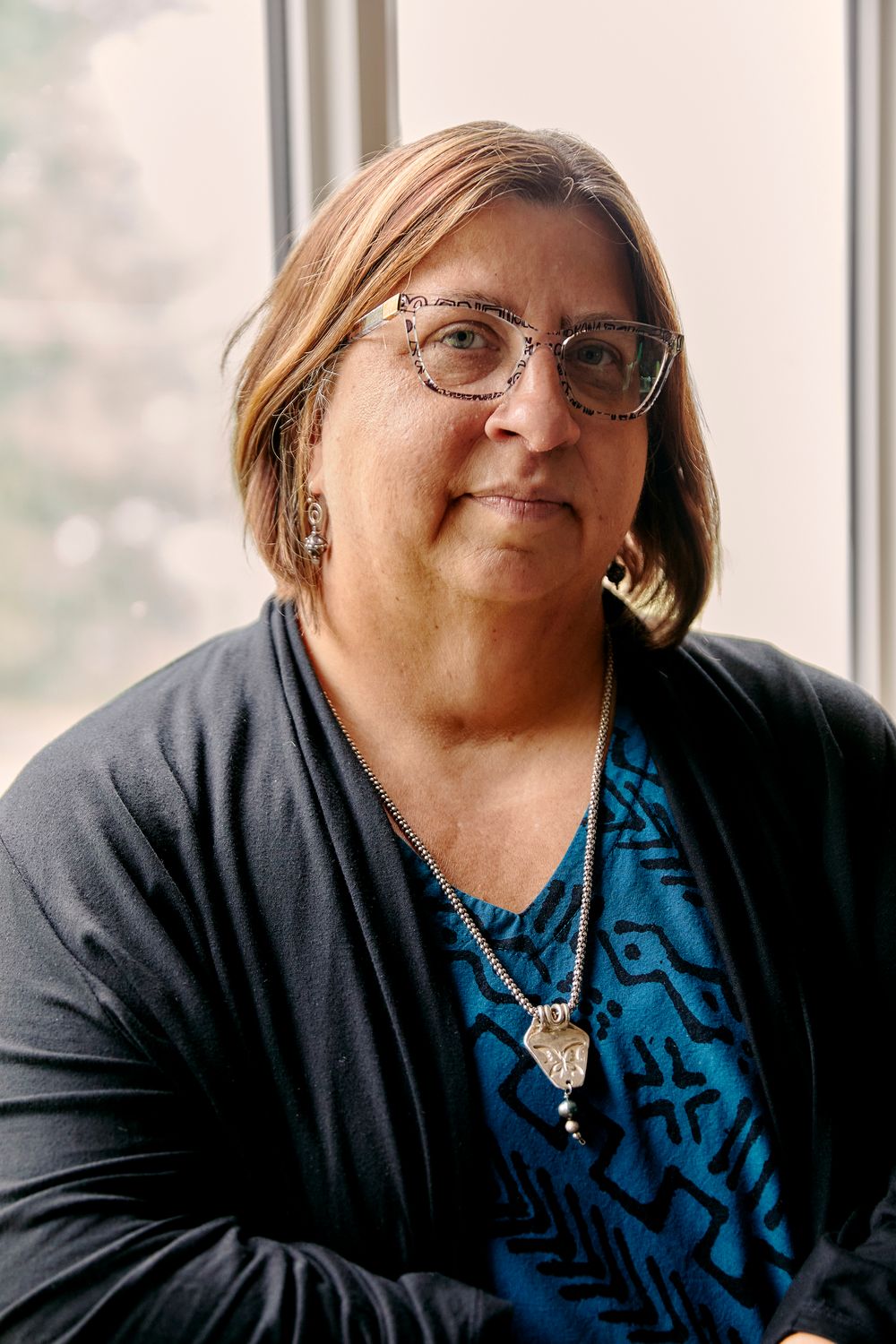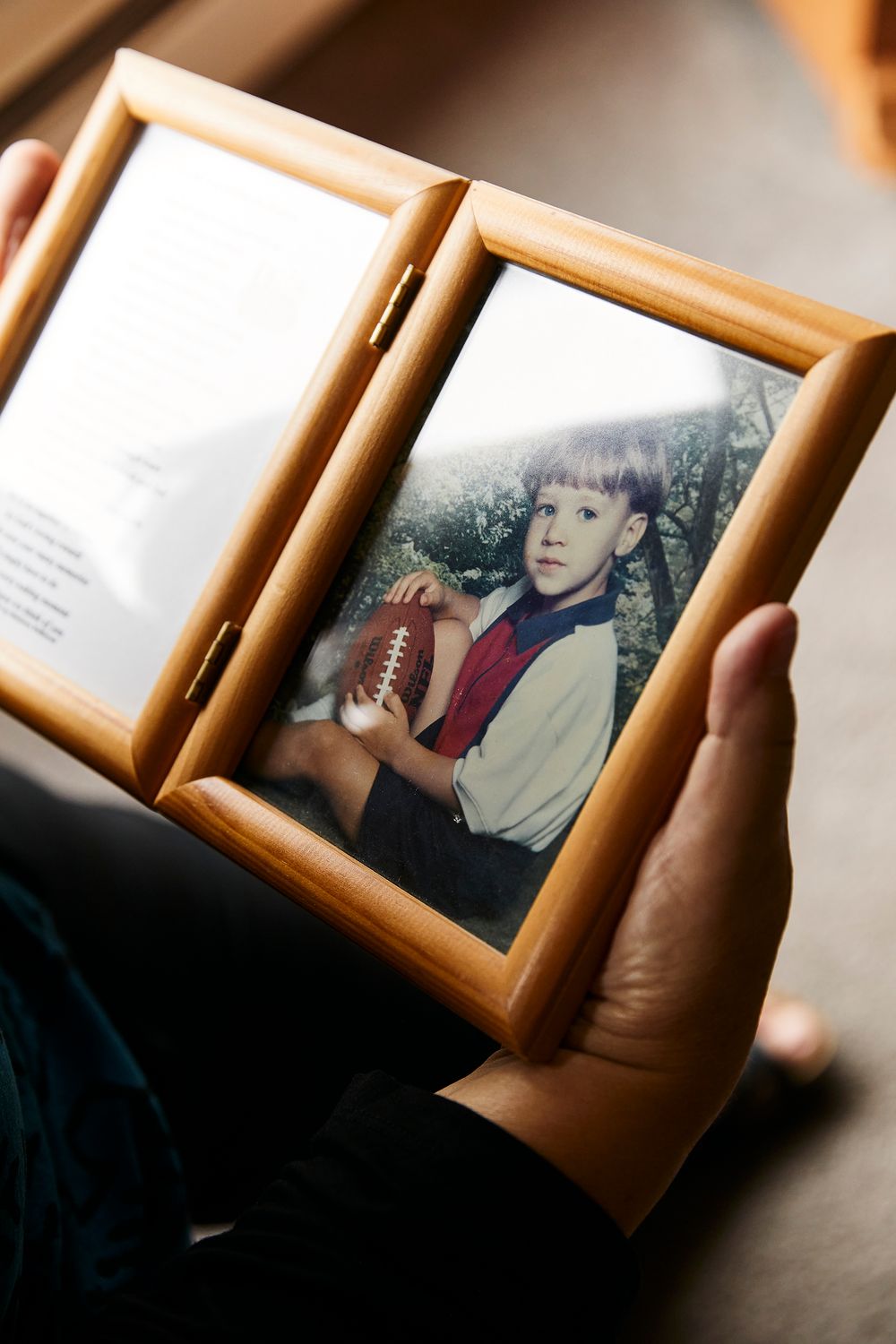Lifting Up Patients’ Voices

Photos by Eric Moran
Lifting Up Patients’ Voices
A personal tragedy inspired Tanya Lord to dedicate her life’s work to improving the safety and quality of healthcare for all
Tanya Lord is on a mission: to improve the healthcare system that tragically failed her family 24 years ago. In June 1999, her four-and-a-half-year-old son Noah had routine surgery to remove his adenoids and tonsils. But in the days that followed, his condition rapidly deteriorated. Noah was briefly admitted to the hospital’s extended emergency department, but soon discharged. Back at home in New Jersey later that day, he hemorrhaged from his surgery site and died.
When Lord (’88) reflected on the events that led to her son’s death, she saw how the failure of doctors and nurses to listen and communicate throughout Noah’s treatment led to medical errors. For example, convinced her son did not have obstructive sleep apnea as the ear, nose, and throat doctor had diagnosed, Lord pushed to remove only his adenoids and leave his tonsils. “He guaranteed me we would be back in six months to take out the tonsils and said it would be cruel to put Noah under anesthesia twice. So, we went ahead with the surgery.”
In the days after the surgery, Noah stopped drinking and eating. He was vomiting and in pain, and was admitted to the extended emergency department for dehydration. Lord continued to feel belittled and condescended to as the hospital discharged him. She was told a nurse would come by the house to set Noah up on IV fluids. That never happened.


“In so many different ways, the surgeon had told me I was stupid and that there was no way I could understand,” she says. “But I knew Noah. I knew everything about him.”
At the time, Lord’s mother, who was head of BU’s African Studies Library, was sending Lord manila folders filled with copies of journal articles about tonsillectomies and posttonsillectomy hemorrhage research from the University’s Alumni Medical Library. The science jargon was often too complex to decipher for a lay reader. “I got increasingly frustrated because I really did believe the universe was telling me I was too stupid to understand what happened to [Noah],” Lord says. “I started thinking, ‘What am I supposed to do now?’”
I BECAME INTRIGUED BY THE CONCEPT OF SYSTEMS AND HOW INDIVIDUALS ARE WORKING WITHIN A BROKEN SYSTEM.
She came to a decision: she wanted to keep Noah’s legacy alive and help the medical community learn from the tragedy. Lord, who’d been a special education teacher, applied and was accepted to the University of New Hampshire’s Master of Public Health program. While her classmates studied more traditional areas of public health, like HIV or smoking, Lord researched why medical errors occur. “I became intrigued by the concept of systems and how individuals are working within a broken system,” she says. “It helped me take away a lot of the anger toward the surgeon and the nurses and all the people who made mistake after mistake after mistake.”
Lord went on to earn a PhD in clinical and population health research from the University of Massachusetts Medical School and launched her career educating others on effective communication and patient care in healthcare settings. For more than 10 years, she was the director of patient and family engagement at the Foundation for Healthy Communities, a sister organization of the New Hampshire Hospital Association, where she advised 26 hospitals on effectively working with patients and families at both the direct care and organizational levels.
She recently started a new role as chief innovation officer with the healthcare consulting firm ATW Health Solutions, whose goal is to impact federal policy, working in patient and family engagement and equity. “Interestingly, a lot of strategies I use are familiar to me from being a special ed teacher,” she says. Those concepts include the teach-back method, in which a care provider makes sure patients understand the information they’ve been given by asking them to repeat it. Another is shared decision-making, which involves including patients in decisions about their medical treatment plan. “What are the patient’s values? What are their cultural needs? What are their desires for their own health and well-being?” Lord says. “It’s about bringing the physician’s and the clinician’s expertise in line with the expertise of the patient or the family member. They know their bodies. That’s a type of expertise that can’t just be ignored.”
Comments & Discussion
Boston University moderates comments to facilitate an informed, substantive, civil conversation. Abusive, profane, self-promotional, misleading, incoherent or off-topic comments will be rejected. Moderators are staffed during regular business hours (EST) and can only accept comments written in English. Statistics or facts must include a citation or a link to the citation.